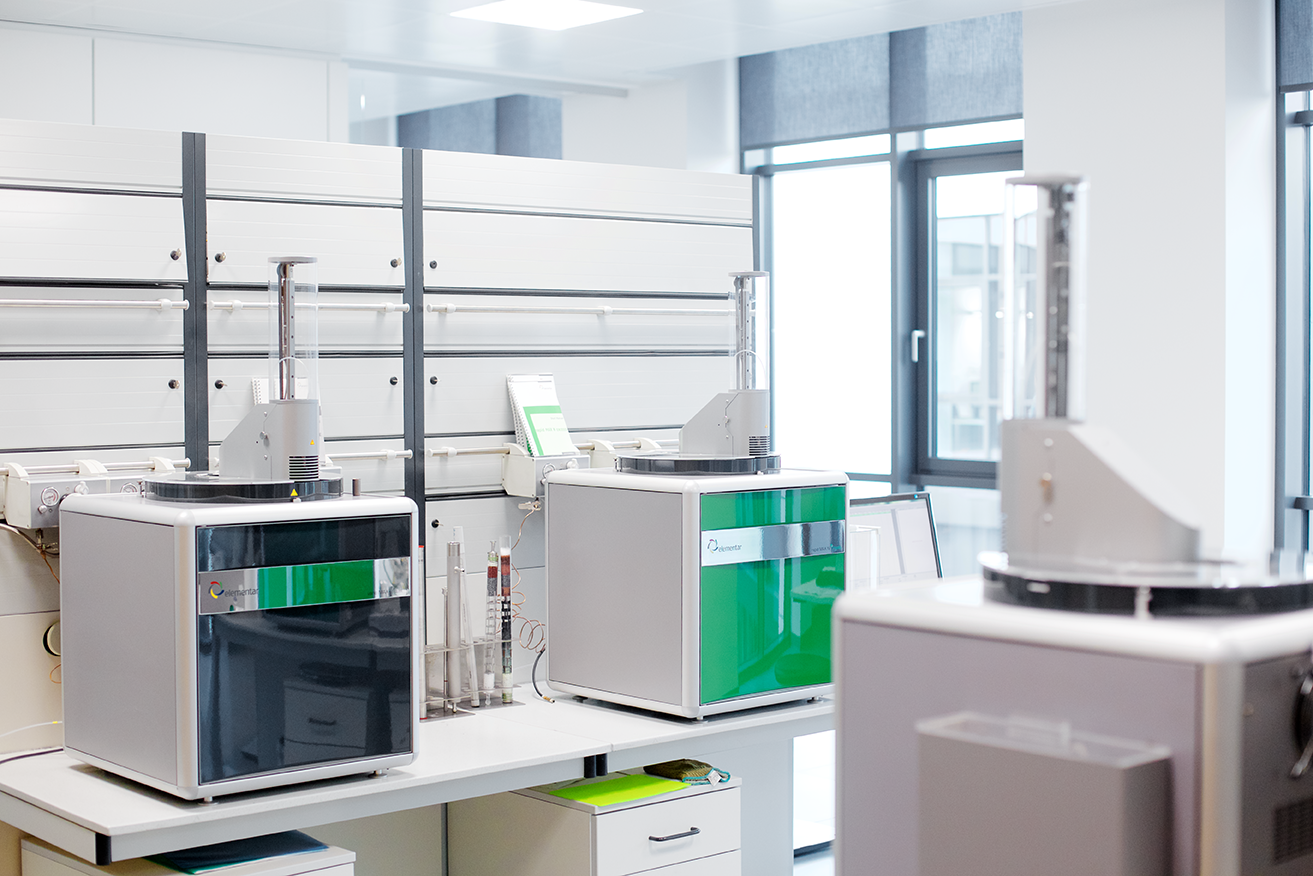
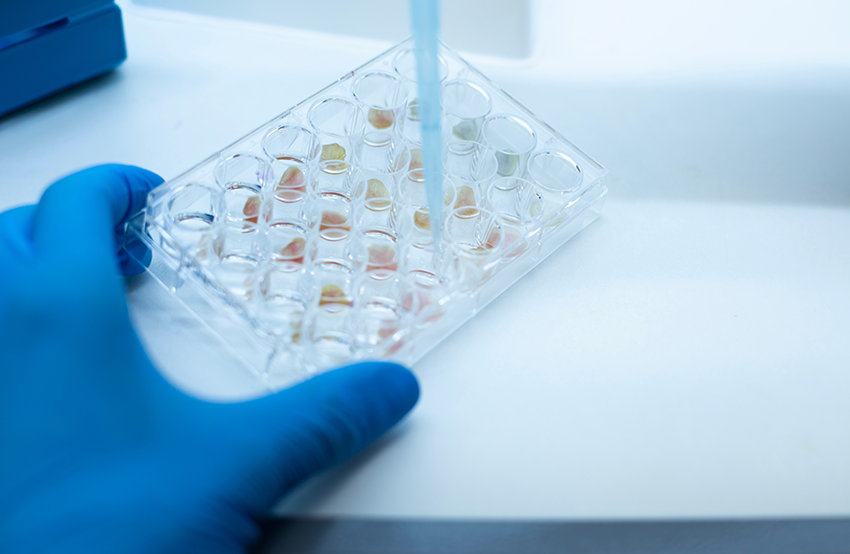
Exploring how New Wave Biotech’s AI software aims to revolutionize bioprocess development
New Wave Biotech’s AI software acts as a virtual lab, simulating vast numbers of experiments to dramatically reduce development time and costs. The result? Cheaper, more accessible alternative proteins, and in doing so accelerating their journey to becoming a mainstream sustainable food source. The company’s CEO & Co-founder, Zoe Yu Tung Law explains more
The world thrives on innovation. New technologies promise to revolutionize industries, solve pressing problems, and improve our lives. In the field of alternative proteins, synthetic biology (synbio) is emerging as a powerful tool, offering a way to create animal-free products that mimic all of the profile characteristics of meat, dairy, and other animal-derived goods.
While the field is still young, synbio holds immense promise for creating a more sustainable and ethical food system. But there are challenges to address, not least in R&D.

with limited resources
Zoe Yu Tung Law is CEO & Co-founder of New Wave Biotech (NWB) and explains that one of the most significant barriers in R&D is the slow and expensive nature of experimentation. “Developing alternative protein sources involves making prototypes, conducting rigorous testing, and gathering data – all of which can be time-consuming and financially draining. However, the challenges don’t stop there,” she explains. “Perfecting plant-based meat substitutes, for example, requires research into replicating the taste, texture, and nutritional profile of animal meat. This can involve exploring novel ingredients, fermentation techniques, and complex food science. Similarly, cultivated meat necessitates advancements in cell biology and bioengineering, increasing development timelines and costs.”
But there’s another sting in the tail. “Around 90% of promising technologies never reach scale because experimentation is too slow and too expensive,” Law reveals. “Each experiment can cost anything from US$10,000 to US$100,000 and take three to 10 years to go from lab to market. Many companies simply run out of money before even making it there!”
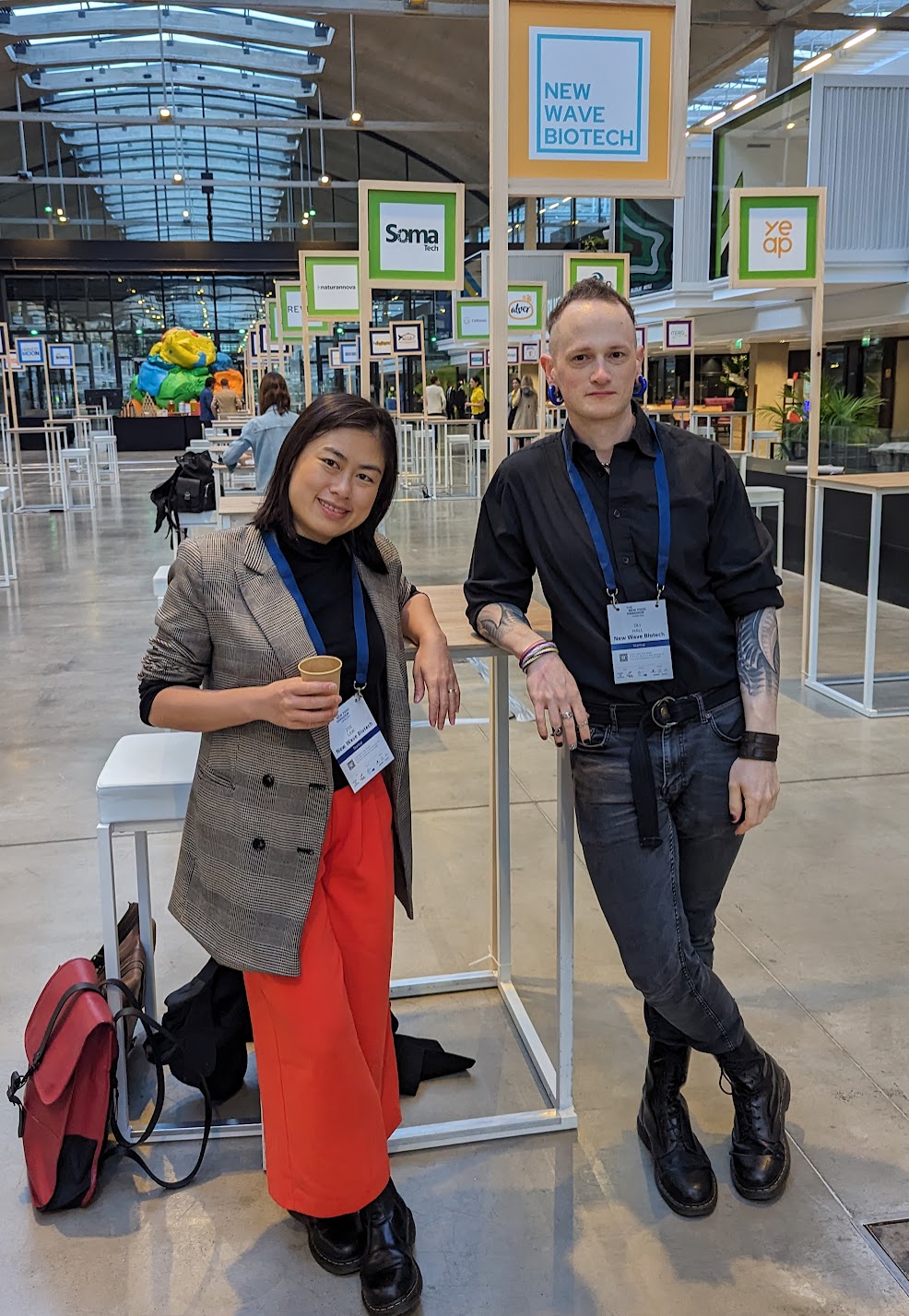
Oli Hall, CTO & Co-founder
Entering the virtual world
Law and NWB’s Co-founder & CTO, Oli Hall, knew there had to be a better way. “That’s how we came up with our product,” continues Law. “It lets our customers virtually experiment with thousands of processes, eliminating the need for physical experiments for most. This empowers them to focus real-world experiments on the most promising options based on factors such as purity, yield, cost, and sustainability.”
Law’s background is in helping large companies launch new tech and data products. “Oli’s a software developer with data engineering expertise,” Law says. “They even led the transition from Excel to AI for R&D at LabGenius, a pioneering biotech company. What truly sets us apart is our hybrid approach that combines traditional mechanistic modeling with AI and machine learning,” Law notes. “Based on scientific principles, mechanistic modeling is already used by engineers and validated in research. It’s the foundation of traditional tools, but there’s a gap between the model and reality as some things are just hard to mechanistically model accurately. That’s where we come in. As you provide experimental data, the model learns and improves its predictions, meaning you can use our software to get initial predictions even without data. As you add more information, the model’s accuracy increases. Plus, the system continuously learns and suggests ways to optimize your experiments.”
Scaling and validation
With scaling being such a massive challenge in the field of fermentation and cell-cultivated meat, how does New Wave Biotech’s software handle this? What validation methods, for instance, are used to ensure the software’s accuracy and reliability when moving from lab to commercial scale? “That’s where we excel,” reports Law. “Our software lets you model experiments of any size, from a tiny two-liter setup to a massive 500,000-liter batch. This allows you to see how your process behaves at different scales and how that impacts your economic analysis – which is conveniently built-in and automated for ease.”
Law also says that the New Wave Biotech team is developing a scale-up/scale-down function. “This helps understand the implications of scaling a small experiment to a large-scale process, and vice versa,” she reveals. “It will essentially provide a guide to which aspects of small-scale experiments are most crucial to focus on when considering large-scale production. This will significantly improve validation across different scales. Beyond our core, well-proven algorithms, we collaborate with customers to validate our predictions against real-world results.”
Recently, Law was thrilled to hear from a customer that said the company’s results consistently gave them predictions within +/- 5-10% accuracy of experiments. “This is exactly what we aim for, which is why we’re continuously working through ongoing studies and collaborations with research organizations to validate further. Our goal is to push that accuracy even higher, and we’re really interested in collaborating with more people across the ecosystem to achieve this.”
So how does New Wave Biotech deal with unforeseen issues that may arise during the bioprocess optimization process? “Incorporating feedback loops is an important way to learn and adapt from real-world data,” Law explains. The real power in using our software lies before experiments. You input your desired process, and it will predict the expected results, which lets you identify potential issues early on. For instance, if the prediction shows no yield, you can investigate the ‘why’ before wasting resources on failed experiments.”
What truly sets us apart is our hybrid approach that combines traditional mechanistic modeling with AI and machine learning
Whenever changes are made, the system automatically updates all projections – yield, costs, and purity. Hitting ‘optimize’ unlocks even more power. The software explores multiple optimization options based on your priorities: cost, yield, process time, or a balanced approach. It leverages your existing experimental data to suggest potentially better processes to explore. This ongoing learning helps customers continuously improve their processes throughout different stages of the R&D cycle to form a continuous learning loop.”
User friendliness isn’t something that people normally associate with bioprocessing software, but New Wave Biotech’s software is different. “Our user-friendly approach wasn’t a pre-determined goal but emerged during development. We recognized the need for a solution that works for early-stage companies and smaller teams who may have limited bioprocessing expertise, and continue to help them across their R&D journey as they scale. Our software provides some initial assumptions, but you can easily adjust them as your R&D process matures. The intuitive design and ease of use eliminates the need for extensive training, and makes it a perfect fit for startups with limited resources, which our customers really appreciate.”
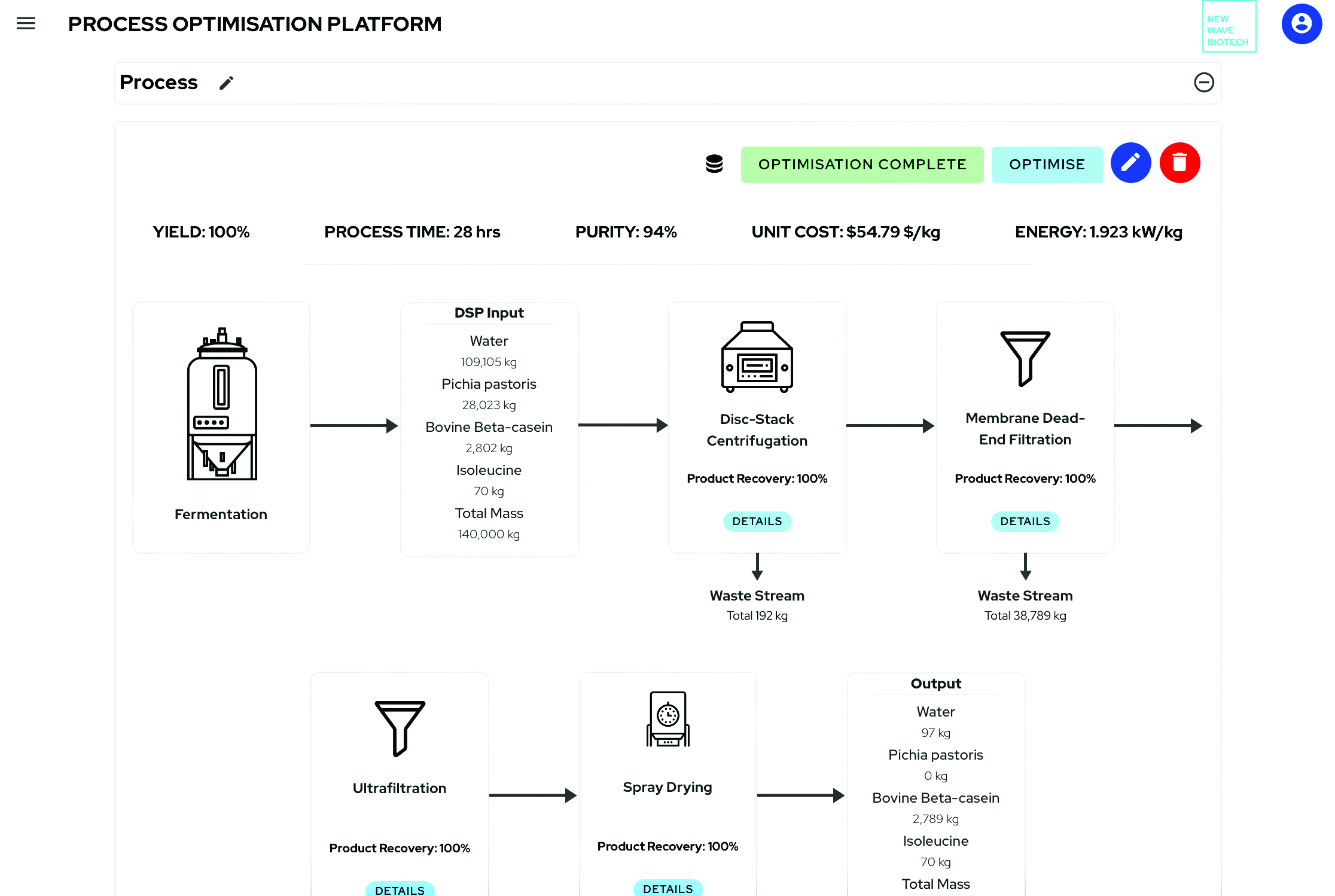
of bioprocess combinations virtually, New Wave Biotech reduces the need for empirical experiments to accelerate R&D and reduce production cost of alt proteins
As biotechnologies and research methods change in the future, how do Law and Hall plan to maintain the effectiveness of the platform they have developed? “This is a part I’m particularly excited about,” she says. “Imagine being the first to model a process for cutting-edge biomanufacturing technologies, like novel purification methods
or continuous fermentation. As a hardware developer with a groundbreaking technique, convincing potential users can be a challenge. They need to trust your technology’s scalability and performance claims. That’s where we come in. Our machine learning software harnesses real-world data and continuously refines predictions. Our collaborative approach of co-developing with new technology creators allows us to lock step with the latest solutions. We envision ourselves as a comprehensive resource, empowering synbio organizations to not just achieve their biomanufacturing goals, but explore the full potential of their bioprocesses.”
Perfect partners
One UK company calling upon New Wave Biotech’s AI expertise is Multus, a fast-growing startup specializing in developing nutrient solutions (growth media) needed to cultivate meat cells. New Wave Biotech’s AI DSP optimization software allows Multus to run simulations and analyze vast amounts of data to develop and improve its growth media much faster and cheaper. By doing this, the aim is to significantly reduce the overall cost of producing cultivated meat. This is why Innovate UK is backing the partnership to make alternative meat more accessible to consumers and accelerate its adoption as a mainstream food source.
“By helping biomanufacturing technology companies get to market quicker with lower production costs, they are better able to replace animal and petrochemical products, transforming the sustainability of supply chains. Ultimately, that’s what we are here for.”
For more information visit www.newwavebiotech.com
If you have any questions or would like to get in touch with us, please email info@futureofproteinproduction.com


%20ILVO%202.jpg)
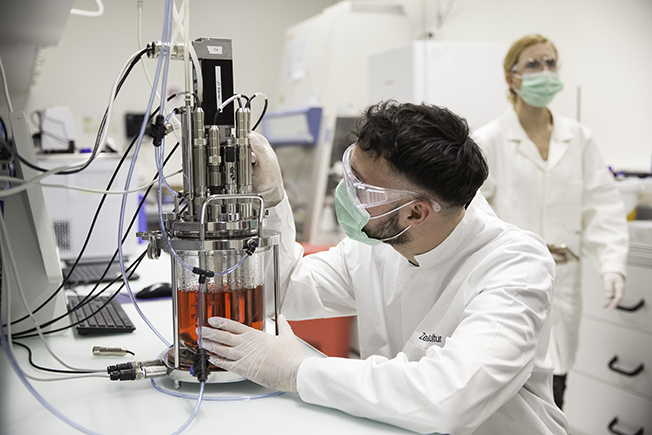
.png)
